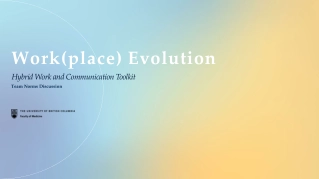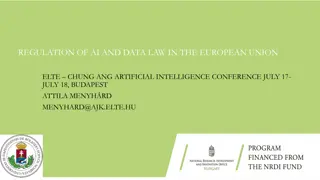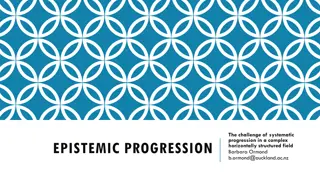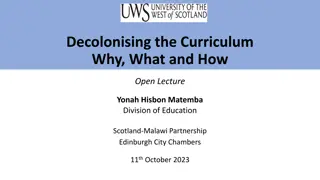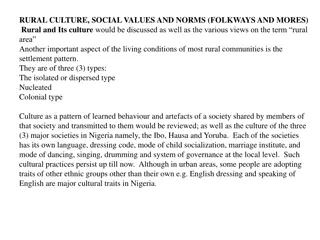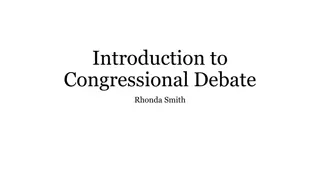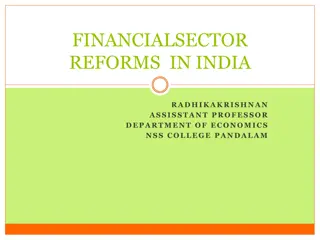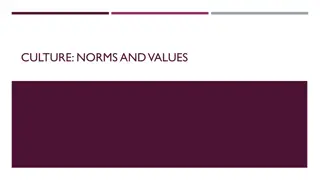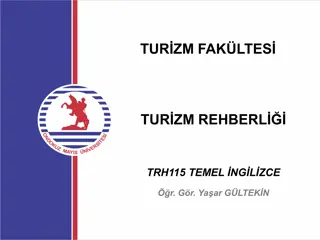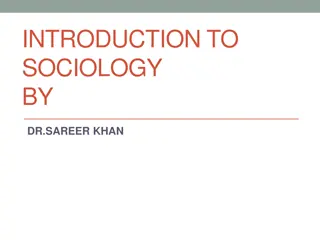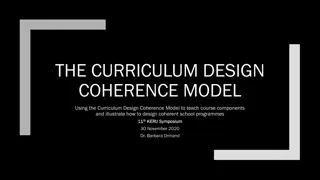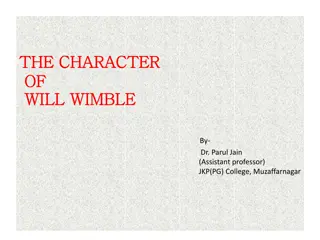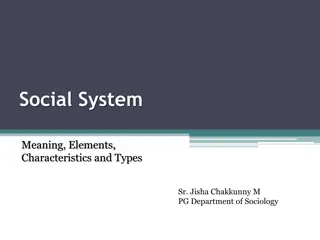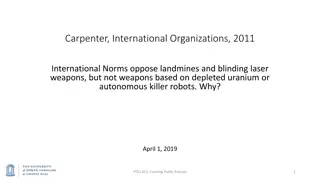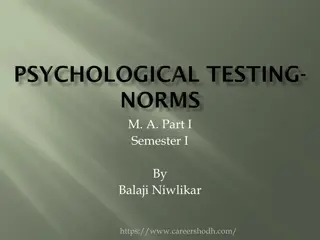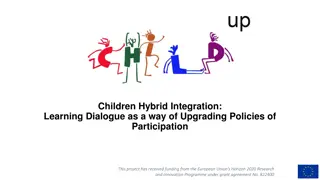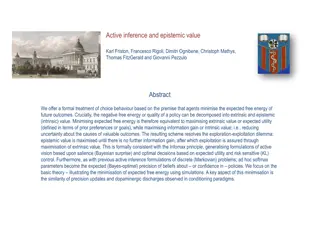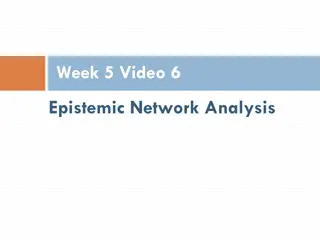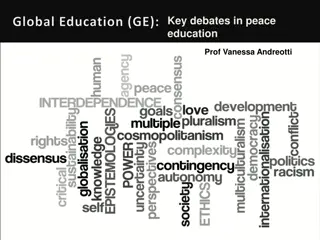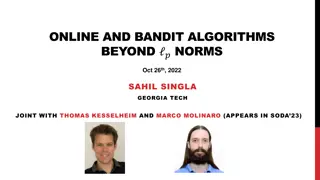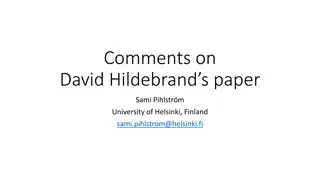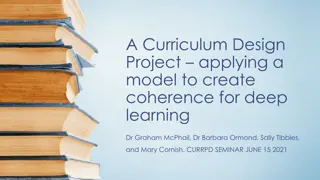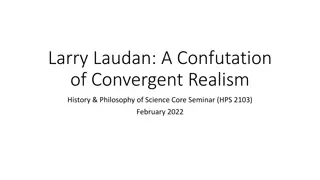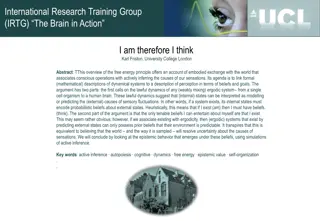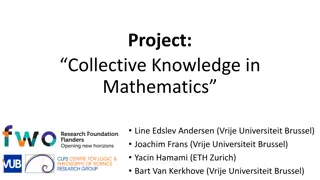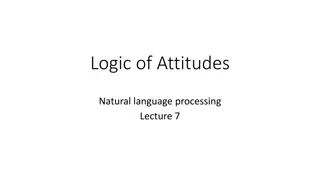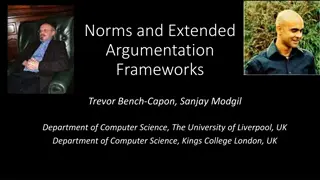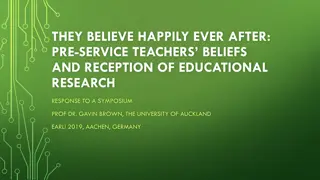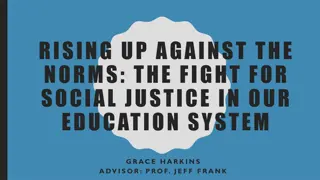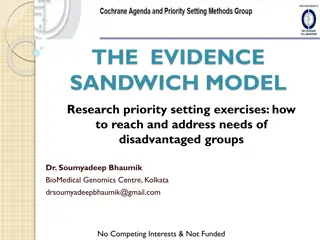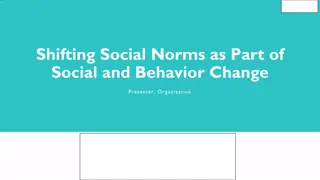Zoom Support Meeting Norms
Follow these meeting norms for Zoom support meetings: mute yourself unless speaking to the group, use chat for questions, be professional and helpful, and be mindful when asking about specific situations.
1 views • 49 slides
Team Norms Workshop Toolkit for Hybrid Work Environments
Designed for facilitating team discussions on norms in a hybrid work setup, this toolkit provides activities, discussion questions, and checklists to ensure effective communication and collaboration. Customize the slides to align with your team's needs and goals. Includes warm-up exercises, norm gen
5 views • 37 slides
Understanding Masculinity Norms in New Zealand
New Zealand faces a challenge with abusive behavior in intimate partner relationships, with one in three women experiencing abuse in their lifetime. This study delves into the impact of masculine norms on men's behaviors and help-seeking tendencies in the context of domestic abuse. Over sixty men pa
2 views • 82 slides
Challenges and Legal Framework for AI Regulation in the EU
Addressing the complexities of regulating artificial intelligence and data law in the European Union, the ELTE Chung Ang Artificial Intelligence Conference delves into the challenges requiring legal answers, the balance between regulation and law enforcement, and the evolving nature of legal norms i
2 views • 21 slides
Understanding Epistemic Progression in Learning: A Humanities Perspective
Exploring the concept of epistemic progression and its importance in education, this content delves into Basil Bernstein's theories on knowledge structure, trends in history education, and the role of procedural knowledge in fostering progression in disciplines like History.
1 views • 10 slides
Decolonising the Curriculum Why, What and How
Explore the complexities of decolonising the curriculum in Scottish education, addressing epistemic privilege, Black History Month, Scottish history and colonialism, missionary movements, and the nuances of the curriculum itself. Consider the purpose and impact of decolonisation efforts in reshaping
1 views • 24 slides
Foster Care Management and Norms in Western Cape: Legislation, Policy, and Standards
The presentation discusses the foster care management in Western Cape, focusing on legislation compliance, norms, standards, and challenges. It covers aspects like foster care orders, Canalisation SOP, human resources, child protection organizations, funding, and more. The strategic implementation o
3 views • 21 slides
Deepening Understanding of Lesson Planning for Ambitious Math Teaching
In this session of the Oregon Math Project - Ambitious Math Teaching, the focus is on planning rich lessons that engage students' rough draft thinking and maintain cognitive demand. The agenda includes setting norms, connecting to research resources, and using a Lesson Planning Framework. Participan
11 views • 52 slides
Understanding Normed Vector Spaces for Nanotechnology Engineering
Introduction to normed vector spaces, focusing on defining norms for vectors in finite-dimensional spaces, exploring different ways to measure vector length, and understanding the concept of unit vectors and norm properties. This topic equips readers with the ability to calculate vector norms, norma
0 views • 9 slides
Rural Culture, Social Values, and Norms in Nigeria
Explore the rich cultural diversity of Nigerian rural communities, focusing on settlement patterns, cultural practices of major societies (Ibo, Hausa, Yoruba), importance of culture, social values, norms, social institutions like family, religion, and government, and changes in social values over ti
0 views • 4 slides
Essentials of Congressional Debate: Rules, Procedures, and Norms
Explore the key components of Congressional Debate including the types of legislation, preparation guidelines, contest norms, and dress code expectations. Learn about bills, resolutions, and constitutional amendments, and understand the importance of courteous behavior, proper attire, and effective
0 views • 27 slides
Financial Sector Reforms in India: An Overview
In the early 1990s, India witnessed significant reforms in its financial sector, addressing issues like lack of transparency, extensive regulation, and financial repression. Key reforms included setting up expert committees, reducing SLR and CRR, implementing prudential norms, and deregulating inter
0 views • 18 slides
Understanding Cultural Norms and Values
Sociologists define culture through norms, values, beliefs, and material objects. Norms are rules that govern behavior, with three basic types: folkways, mores, and laws. Folkways are customs without moral significance, mores are norms with moral importance, and laws are clearly defined and enforced
0 views • 15 slides
Understanding Modal Verbs: Epistemic and Deontic Uses
Modal verbs, such as can, could, may, must, will, and should, play a crucial role in expressing modality in English. This content discusses the epistemic and deontic uses of modal verbs, illustrating how they convey likelihood, ability, permission, suggestions, obligations, and advice. Explore the n
0 views • 34 slides
Understanding Culture in Sociology: Key Concepts and Definitions
Culture is the cornerstone of society, distinguishing humans from animals and shaping our social lives. Sociologists define culture as the shared values, practices, norms, and beliefs that govern our interactions and behaviors. This comprehensive guide explores the non-material aspects of culture, i
1 views • 30 slides
Enhancing Teaching Through Curriculum Design Coherence Model
Explore the use of the Curriculum Design Coherence Model (CDC) for designing effective lectures and guiding pre-service teachers in creating coherent lesson plans. Learn about epistemic progression, systematic ordering of knowledge, types of knowledge, and Bernsteins's knowledge structures to design
0 views • 26 slides
Analysis of the Character of Will Wimble by Sir Richard Steele
Sir Richard Steele's essay "The Character of Will Wimble" explores the persona of Will Wimble, a man of leisure with no specific business but known for his helpful nature and skills in handicraft. Will, a younger brother of a baronet, is portrayed as a responsible individual who assists others with
0 views • 6 slides
Understanding Social Systems: Meaning, Elements, Characteristics, and Types
Social systems are orderly arrangements of social interactions based on shared norms and values. Talcott Parsons introduced the concept in modern sociology, defining it as an interrelationship of social actors interacting based on shared cultural norms. Social systems encompass various subsystems li
2 views • 70 slides
International Norms and Weapons Regulation: Analyzing the Selectivity of Bans
International norms exhibit selectivity in banning certain weapons like landmines and blinding laser weapons while permitting others such as depleted uranium-based arms and autonomous killer robots. The discrepancy raises questions about ethical outrage in weapon condemnation and the role of agenda-
0 views • 12 slides
Understanding Measures of Central Tendencies and Norms in Test Evaluation
Exploring topics such as measures of central tendencies (mean, median, mode), variability, understanding raw scores, standardization samples, norms in test evaluation, and types of evaluation protocols. Learn about developing norms, derived score interpretation, and the significance of evaluation me
7 views • 35 slides
Enhancing Children's Hybrid Integration Through Dialogue in Education
Presenting research results on enhancing children's agency and hybrid integration through dialogic interactions in school settings, specifically focusing on children with migrant backgrounds. The project aims to propose effective facilitation methods to support the participation of children with mig
0 views • 28 slides
Exploring Inductive Inferences and Their Relation to Probability
Nevin Climenhaga delves into the world of inductive inferences, categorizing them into downward, upward, and sideways forms. He discusses connections with probability, confirmation, epistemic defeat, and more, emphasizing the distinction between direct and indirect forms of inferences.
0 views • 15 slides
Understanding Active Inference and Epistemic Value in Decision Behavior
This study presents a formal framework for decision-making, suggesting that agents minimize expected free energy of future outcomes by balancing extrinsic and epistemic values. By maximizing information gain and reducing uncertainty, agents navigate the exploration-exploitation dilemma. The strategy
0 views • 18 slides
Understanding Epistemic Network Analysis in Data Studies
Epistemic Network Analysis (ENA) is a method for studying relationships between elements in coded data with various applications. It involves analyzing nodes as occurrences of codes and links as co-occurrences of codes. Using examples like analyzing quitting behavior in a game, ENA can compare group
0 views • 30 slides
Exploring Key Debates in Peace Education by Prof. Vanessa Andreotti
Dive into the intricacies of peace education through the lens of Prof. Vanessa Andreotti, examining the Magolda Model of Epistemic Development. Explore themes such as violence vs. non-violence, complexity of human beings, empathy, critical thinking, and promoting heroic imagination towards cultivati
0 views • 12 slides
Advanced Techniques in Online and Bandit Algorithms Beyond Norms
Delve into the realm of online and bandit algorithms beyond traditional norms as discussed by Sahil Singla from Georgia Tech in collaboration with Thomas Kesselheim and Marco Molinaro. The presentation explores the design and optimization of algorithms for online settings, shedding light on load bal
0 views • 21 slides
Reflections on Values and Identity in Research by David Hildebrand: A Critical Analysis
Delve into thought-provoking questions raised by Sami Pihlström on David Hildebrand's paper, exploring themes such as the impact of changing fundamental values on personal identity, the concept of reflective equilibrium in research methodologies, the significance of core values, the interplay betwe
0 views • 8 slides
Enhancing Curriculum Coherence for Deep Learning: A Model-driven Approach
Addressing the disconnect between conceptual knowledge and applied competencies in education, the Curriculum Design Coherence Model offers a structured framework to create coherence for deep learning. Developed in response to educational challenges such as skills versus knowledge imbalance and fragm
1 views • 28 slides
Understanding Group Dynamics in Team Environments
Group norms play a crucial role in shaping behavior within a team setting, whether through prescribed norms taught to new members or emergent norms that develop through group interactions. Group roles like initiator, facilitator, and agitator also impact how a team functions. Effective initiators co
0 views • 27 slides
Critique of Convergent Realism by Larry Laudan
Larry Laudan's "A Confutation of Convergent Realism" challenges the notion of epistemic realism by arguing that historical evidence does not fully support it. He discusses Convergent Epistemological Realism (CER) and presents abductive arguments questioning the truth and empirical success of scienti
0 views • 18 slides
The Free Energy Principle and Active Inference in Cognitive Dynamics
This overview of the free energy principle by Karl Friston delves into how conscious operations are linked to inferring causes of sensations, emphasizing the necessity of probabilistic beliefs about external states. The discussion includes topics like embodied exchange with the world, ergodic system
0 views • 32 slides
Exploring the Intersection of Social Epistemology and Mathematics
Delve into the intertwining realms of social epistemology and mathematics, examining the collaborative knowledge creation within the mathematical community. This work emphasizes the social dimensions influencing mathematical practices and the epistemic norms shaping reliable mathematical knowledge.
0 views • 15 slides
The Politics and Ethics of Knowledge Production in Migration Studies by Sari Hanafi
This insightful study delves into the politics and ethics surrounding knowledge production in migration studies. It explores the normativity of migration studies, identity politics, and universalism, while emphasizing the importance of ethics and epistemic community. The discourse also touches upon
0 views • 16 slides
Understanding Propositional and Notional Attitudes in Logic and Natural Language Processing
Explore the intricate concepts of propositional and notional attitudes in the context of logic and natural language processing. Dive into the distinctions between belief, knowledge, seeking, finding, solving, wishing, and wanting within the realms of individual intensions and hyper-intensions. Under
0 views • 16 slides
Norms and Practical Reasoning Frameworks in Value-Based Argumentation
Norms play a crucial role in influencing behavior through practical reasoning. Practical reasoning involves using value-based argumentation frameworks to generate and evaluate arguments, as demonstrated in the parable of the Ant and the Grasshopper. The story highlights the importance of planning fo
0 views • 15 slides
Pre-Service Teachers' Beliefs and Reception of Educational Research
Exploring the awareness and trust of pre-service teachers in educational psychology misconceptions, epistemic trust in educational scientists, questioning prior beliefs when faced with evidence, and beliefs about the instrumental quality of information sources for teaching. The symposium delves into
0 views • 10 slides
Challenging Education Norms: Towards Social Justice
The fight for social justice in the education system is imperative as flawed norms hinder progress. Recognizing gender norms in teaching, addressing racial inequalities, and navigating COVID-19 disruptions are key areas of focus. By breaking down entrenched norms, empowering students, and advocating
0 views • 31 slides
Understanding Norms and Global Governance Dynamics
Explore the complex interplay between norms, governance structures, and international tribunals in the context of global perspectives and societal behavior. Discover how norms evolve, the roles of various stakeholders, and the impact on accountability and justice in a changing world landscape.
0 views • 22 slides
Evidence Sandwich Model: Addressing Needs of Disadvantaged Groups
In a world of medical advancements, reaching those in resource-poor settings remains a challenge. The Evidence Sandwich Model explores ways to prioritize research, collaborate, and tackle implementation bottlenecks to deliver basic care to disadvantaged populations. Led by Dr. Soumyadeep Bhaumik, th
0 views • 18 slides
Advancing Social Norms in SBC Programming
Explore the nuances of social norms programming and its impact on behavior change initiatives. Delve into the strategies and evolution of shifting social norms for effective outcomes.
0 views • 56 slides

